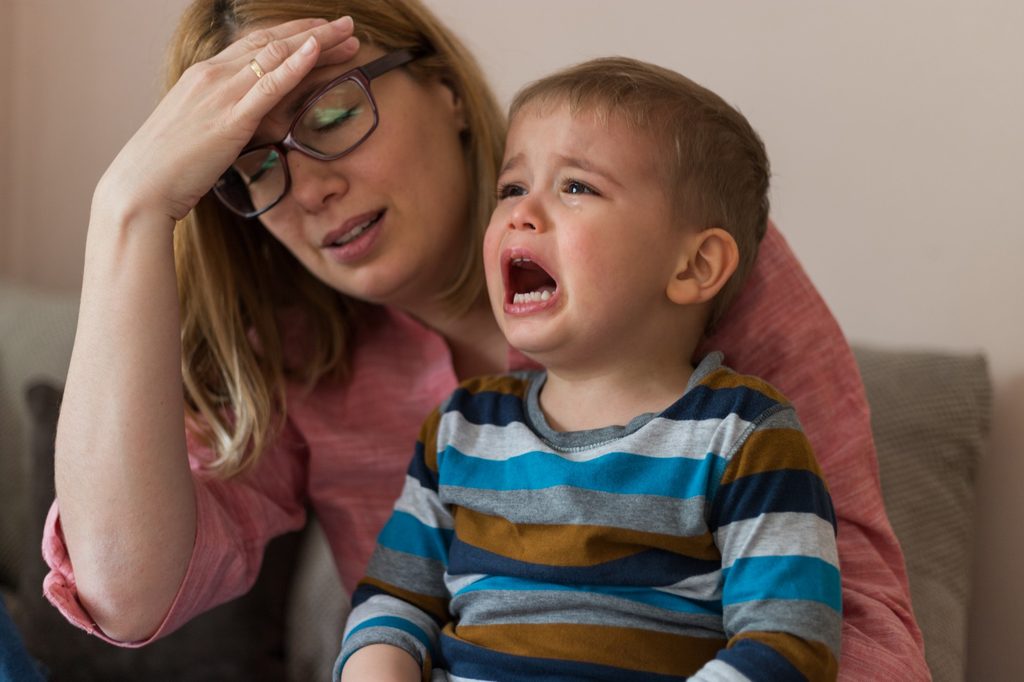While everything may look like sunshine and rainbows when families post happy pictures on social media, parents know that image isn’t always true life. Parenting is probably the most difficult and often thankless job you will ever have. It is the most important, though. If you’re on TikTok, you’ve probably seen videos touting different parenting styles, like almond moms or scrunchy moms, as well as elephant parents. All the discussion about parenting styles can make new and veteran moms and dads wonder what the ideal approach to raising kids is.
In the 1960s, three main parenting types were identified and studied by developmental psychologist Diana Baumrind. These parenting styles included authoritative, authoritarian, and permissive. The 1980s brought uninvolved parenting into the mix. This style was introduced by psychologists Eleanor Maccoby and John Martin. Authoritative parenting is often confused with authoritarian, but the two are actually different. The authoritative parenting style finds a constructive medium between authoritarian and permissive parents. This balance is why many parenting experts feel it’s the ideal way to raise confident and well-adjusted kiddos. So, what exactly is authoritative parenting, and is it the right style for your family?
Four main parenting styles

In order to understand authoritative parenting, it’s helpful to understand Baumrind’s main parenting styles.
Authoritarian
Authoritarian parents have a high level of control over their children, with strict rules and consequences for not following them. There isn’t a gray area with authoritarian parents; it’s just black and white. Think about the my-way-or-the-highway or the because-I-said-so parenting method.
Permissive
Permissive parenting is on the opposite end of the spectrum from authoritarian parents. With a permissive parenting style, there is lots of loving and caring, but very little structure, rules, or consequences. Parents want to be more like friends to their kids than the people in charge.
Authoritative
Authoritative parents fall somewhere between the two. Their parenting style has structure and rules, but unlike authoritarian parenting, the consequences aren’t black and white. Authoritative parents use those moments of failure as teachable moments. While they’re not always without consequences, kids are given the opportunity to step up and learn from mistakes.
An example of authoritative parenting is when a child fails to complete a chore when told to. An authoritative parent will give a gentle reminder about what needs to be done with a reasonable expectation of when it needs to be finished. If the child still doesn’t do it, then there are consequences, but not without a discussion about positive choices. Authoritative parents don’t use intimidation as a means of getting kids to stay in line. This is why kids raised by authoritative parents tend to have higher self-esteem and confidence and better problem-solving skills.
Uninvolved (or neglectful)
Maccoby and Martin’s uninvolved or neglectful parenting style is exactly what it sounds like. Uninvolved parents provide their children with the bare minimum in terms of structure, emotional, and physical support. Kids raised in a neglectful environment often have low self-esteem and difficulty interacting socially with their peers, among other issues.
When you look at the four parenting styles, authoritative parenting certainly stands out as the most positive. Who doesn’t want well-adjusted, confident kids? So, what’s the drawback?
Pros and cons of authoritative parenting

Pros
Leaving out the other types of parenting styles like helicopter, almond, and elephant, which have cropped up over the last several years, authoritative parenting sounds like the best choice. Kids raised in an authoritative environment learn to be accountable for their actions by making positive choices. They don’t do what’s expected of them out of fear or learn things the hard way, like in a permissive or uninvolved environment. When parents show kids respect, children learn to treat other people that way.
Remember, you are your child’s first and most important role model. When kids are given the opportunity to learn from their mistakes without fear of punishment, they learn how to problem-solve and navigate challenges. This is what leads to higher self-confidence and self-esteem. It also instills in kids the ability to make their own choices and not just follow along blindly. Children raised by authoritative parents tend to do better is school as well.
Cons
With all of these pros, what is the downside to being an authoritative parent? Well, as with most things, there is always a con. The main drawback to the authoritative parenting style is that it’s hard to maintain, especially when kids turn into those eye-rolling, back-talking teens or through those terrible twos.
Think of authoritative parenting as a marathon, not a sprint. With authoritarian parenting, the results are swift because there isn’t any room for discussion. Children must do as parents say or suffer the consequences. Being an authoritative parent requires a lot of time and energy, as well as trial and error. Every child is different. So, what worked with your first child may not go smoothly with the youngest.
The key to staying the course as an authoritative parent is patience, consistency, and flexibility. Finding that balance between structure and independence isn’t easy. Sometimes the seas will be rough like right before that picture-perfect family photo posted on social media.
In the end, though, the positive outcomes of authoritative parents outweigh the drawbacks. Sure, it takes time and effort to set clear, age-appropriate boundaries for your kids. You also need to follow through with consistency while still allowing your kiddos to learn from their mistakes and make their own choices at times. Finding that pivotal balance between being a strict disciplinarian and a doormat isn’t easy, but it is worth it.



